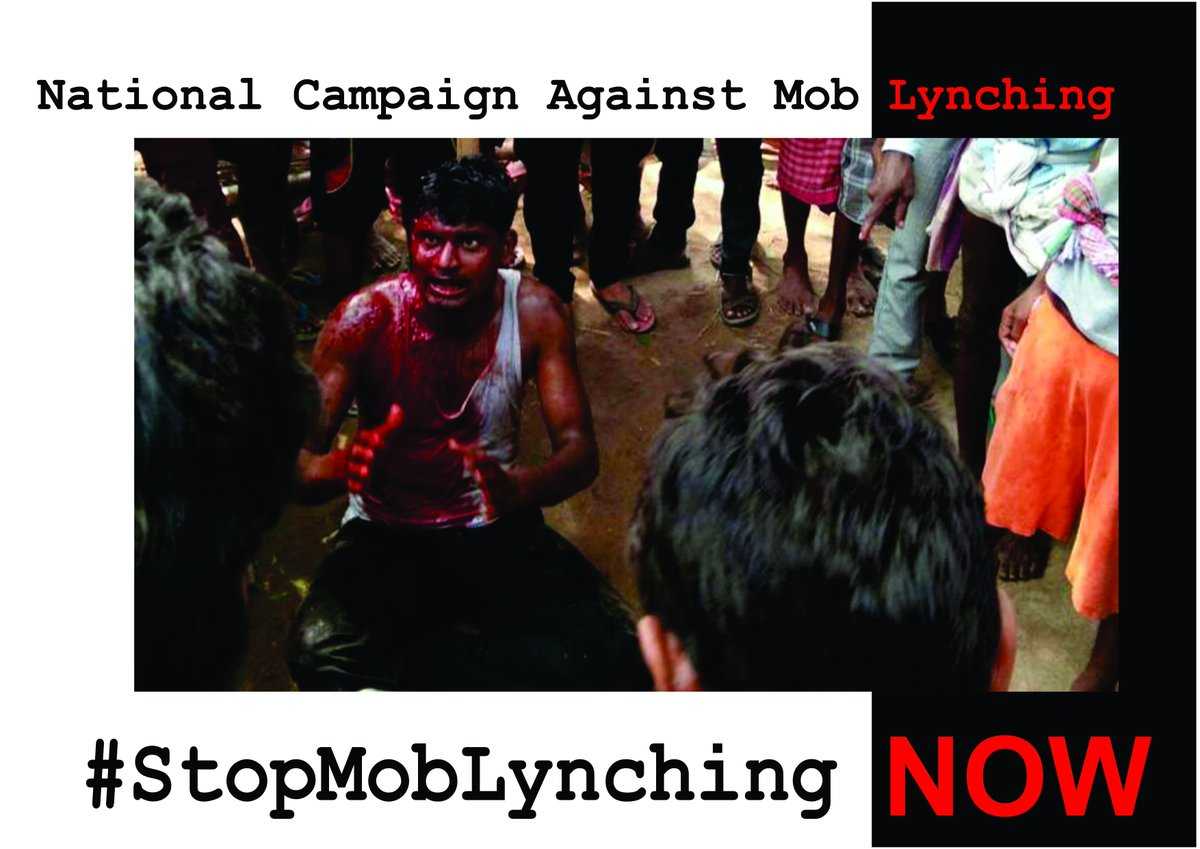[vc_row][vc_column][vc_column_text]Youth and star activists gather to start Manav Suraksha Kanoon movement
By Lilly Paul
Like-minded citizens have come together to prepare a draft Bill, Protection From Lynching Act, 2017, looking at a new law against the rampant mob lynching taking place in the country. The draft of the proposed law, termed Manav Suraksha Kanoon (MASUKA), was released at the Constitution Club of India in New Delhi on July 7 by the National Campaign Against Mob Lynching.
The group has among its founding members youth leaders Tehseen Poonawalla, Shehla Rashid, Kanhaiya Kumar, Jignesh Mewani and Pankhuri Pathak.
The draft will be given to the NDA government first for their MPs to take up. If they do not, then there is a possibility that the draft would be given to any MP to be presented as a private member’s Bill. However, there seems to be a difference of opinion within the group on how to approach with this draft, Shehla Rashid not being for a private mention. This is a bit of confusion they have to clear up before they go ahead with it.
Prakash Ambedkar, grandson of BR Ambedkar, was also present at the release, along with Congressman Shehzad Poonawalla, civil rights activist Teesta Setalvad, JNUSU President Manoj K Pandey and missing JNU student Najeeb Ahmed’s sister, Sadar Musharraf.
Many people like Congress MP Shashi Tharoor, Swara Bhaskar, Manoj Jha and Jignesh Mevani conveyed their support through video messages.
The drafting committee for the Bill was headed by senior Supreme Court lawyer Sanjay Hegde. The committee also included activist and journalist Anil Chamaria, JNU professor Nivedita Menon, campaigner at Amnesty International Sanam Wazir, Delhi University professor Apoorvanand, Delhi School of Social Work professor Manoj Jha, feminist author and publisher V Geetha, senior advocate Rebecca John and actress Swara Bhaskar and other activists.
The draft defines ‘mob’ and ‘lynching’ and proposes to make lynching a non-bailable offence. It puts responsibility on the concerned SHO of the area where the lynching took place and demands a time-bound judicial probe, with maximum time limit of six months. The imprisonment for the guilty can extend up to life imprisonment under the proposed bill. It also demands compensation for the victim’s family.
A website and an email-Id have been launched for people to send in their suggestions, queries and feedback on the draft. The draft has been uploaded on the website stopmoblynching.com.
People can register their support for the Bill and send their queries, comments and suggestions to the website. The members had also planned to take out a march – called Insaaf March – to the Prime Minister’s residence and hand him the draft (read the draft here) personally but since he is off to Hamburg for the G20 summit, this couldn’t be possible.
The campaign members will give a copy of the draft to the MPs of their area asking them to support the Bill and will conduct events to keep the campaign going. The campaigners will also take out a march to Parliament when the next session of the Parliament begins on July 17.
The members said that they had earlier decided to name the Bill Nagrik Suraksha Kanoon but later changed it to Manav Suraksha Kanoon because not just Indian citizens but African nationals have also been harassed and assaulted by mobs and since this Bill has been drafted to save any human subjected to barbarism by mob.
On being asked if they were hopeful about the government giving a green signal to their Bill, Tehseen Poonawalla said with all seriousness: “Our Prime Minister is a very kind hearted man, he condemns violence taking place in any part of the world. He was the one who said don’t kill the Dalits, kill me instead. When you have such a Prime Minister why wouldn’t one be hopeful? We have all our faith in him.”
Teesta Setalvad, who will be launching the draft in Mumbai, said: “Any citizen of this country, who seeks help from the police or the authorities should not be denied help as it happened with Junaid’s brothers or Najeeb’s mother. I extend my support to this Bill and every aware citizen of this country should support it.”
Student activist and one of the members of the drafting committee, Shehla Rashid said: “The onus is completely on the Prime Minister, he should accept and stand up for this Bill thereby giving the message to cow vigilantes, Not in My Name. We don’t want this Bill to be presented as a private Bill because such bills get nowhere. We want the government to take it up.” Here is where the confusion arose in the route the draft should take. Other members told this correspondent that they had no objection to this draft moving through as a private Bill.
Said Rashid: “When a person is lynched, the message is very clear: ‘you do not belong to our society’. When a mentally challenged woman is lynched, the message is that mentally disabled people have no right to live in the society. When a Muslim is lynched or a Dalit is flogged in public, it is meant to terrorise the whole society.”
Prakash Ambedkar said: “If the government accepts this Bill, a message will go across the country that they do not support the culture of lynching.”
Prior to the draft release, an online petition was floated by actor Swara Bhaskar on Change.org demanding a ban on cow vigilante groups. The petition at present has received over 27,000 signees. The petition titled ‘Walk the talk, enact Manav Suraksha Kanoon’ was addressed to the Prime Minister.[/vc_column_text][/vc_column][/vc_row]


 Latest world news18 hours ago
Latest world news18 hours ago
 Latest world news18 hours ago
Latest world news18 hours ago
 Latest world news17 hours ago
Latest world news17 hours ago
 India News18 hours ago
India News18 hours ago
 India News9 hours ago
India News9 hours ago
 Latest world news8 hours ago
Latest world news8 hours ago






